Lucky Luciano
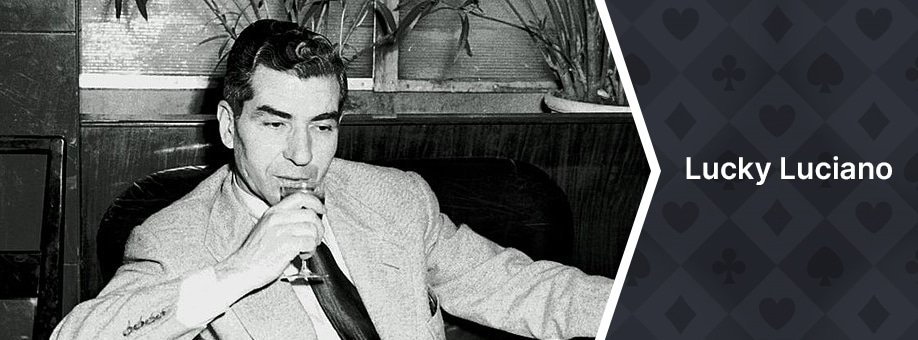
Gangster who was a Criminal Mastermind
Anyone into the history of the mafia will be familiar with at least the name of Lucky Luciano, if not his actual exploits. Although not as well known with the public as Al Capone, Luciano was significantly more important for the strength of the gangster underworld for decades, before legislative changes and the advent of the Racketeer Influenced and Corrupt Organizations (RICO) Act started taking down the mafia.
Gambling was not only a business venture for Lucky, but a private pastime. When as a teenager he won the equivalent of 34 weeks' wages in a dice game he quit his job delivering hats, shortly afterwards forming his own gang. Not surprisingly, Lucky was arrested for many reasons, including illegal gambling, and in the Prohibition Era he made most of his money from a combination of bootlegging and betting.
In the early 1930s, Lucky was playing cards with his boss Masseria. He went to visit the bathroom, and gunmen entered the premises to kill Masseria. Lucky had betrayed his boss in return for a high ranking position with a rival crime gang led by Maranzano. When Maranzano decided Lucky was too dangerous, he plotted his death, but Lucky Luciano lived up to his name, learnt of the plot, and sent Maranzano to join his old enemy Masseria.
Meyer Lansky
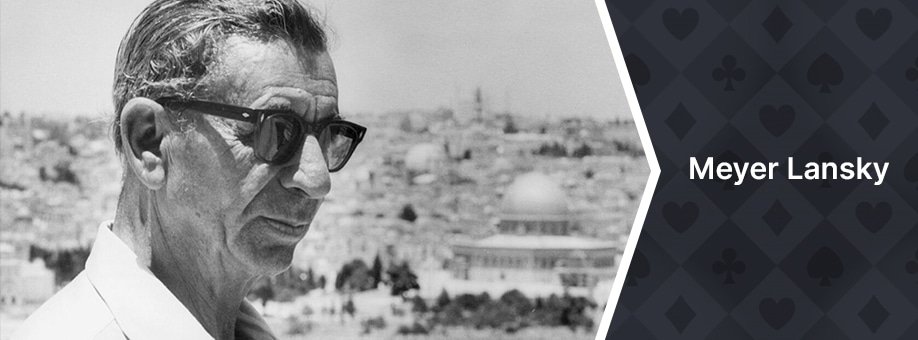
One Smart Criminal
Another key figure in the development of organized crime and gambling in the United States was Meyer Lansky. He spent half a century chest-deep in the underworld, but was never found guilty of anything other than illegal gambling. Together with Benjamin 'Bugsy' Siegel he formed the Bugs and Meyer Mob, and was renowned as the mind behind the operation. By the mid-1930s, Lansky had gambling operations running in Cuba, Florida, and New Orleans.
Betting was well-suited to Lansky's sharp mind, as he understood the mathematical concepts between 'true' odds and the odds a bookie might offer. This, coupled with his mob and police connections to ensure the safety of his premises and players, made him a smooth operator in the field of illegal gambling. Lansky shifted his money into a Swiss bank account for the sake of anonymity, and to protect himself from the mess Al Capone found himself in over tax evasion.
Lansky did his best to protect his friend Siegel when his hotel was running at a serious loss, but in the end, so it's said, he was compelled to give the go ahead to Siegel's murder in 1947.
Bugsy Siegel
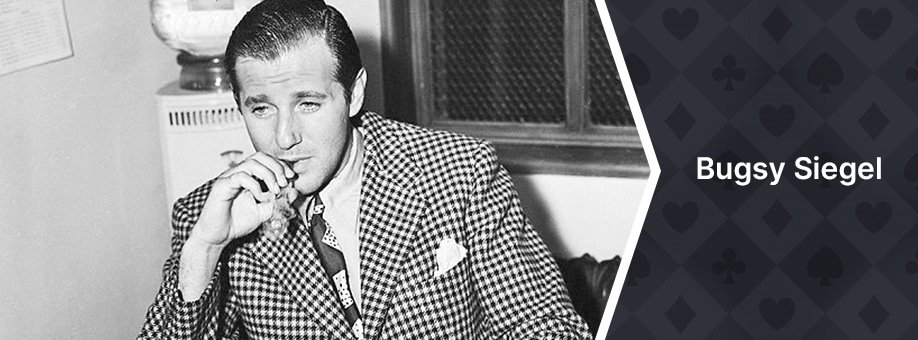
The Very Violent Bugsy
Bugsy Siegel was a mobster who played a significant role in the development of both the mafia generally and the Las Vegas Strip. Ironically, it was betting on his own competence that ultimately led to his untimely death at the hands of an unknown gunman. As mentioned already, Siegel knew Lansky, and the pair became friends early on. Siegel was known for a volatile and violent nature, which made him ideal for the rough end of mafia work, but unlike his friend Lansky he didn't have the same degree of business nous. The pair ran Murder Inc., which killed hundreds of people by contract.
Siegel is believed to be one of the four men who killed Masseria (on Lucky Luciano's orders), and may also have been part of the crew who did in Maranzano. But his only conviction was in 1932 for gambling and vagrancy. In the 1930s he headed for California to set up gambling rackets. The next decade saw him go to Las Vegas to run the Flamingo Hotel. And he ran it into the ground, running up such severe losses the mob terminated his tenure. It was ironic that he was turning a profit at the end, but it had taken so long to turn things around the mob bosses had grown tired of waiting.
Anthony Cornero
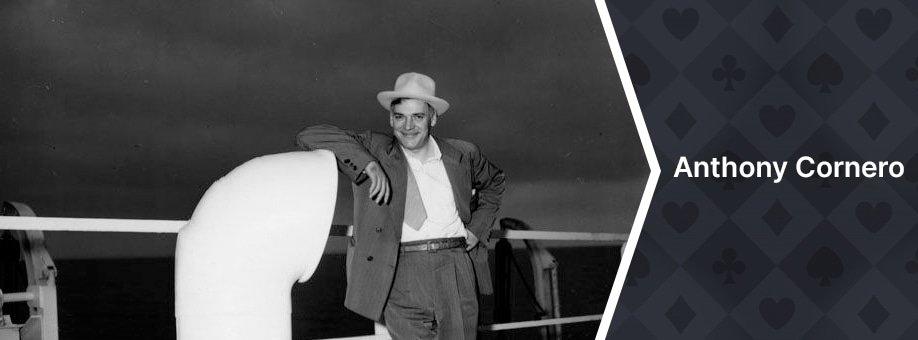
Tony the Hat
Anthony Cornero, also known as Tony the Hat or the Admiral, was a criminal and a gambler but not always at the same time. Born in 1899 in the Piedmont region of Italy, Cornero's life was dramatically impacted by gambling when his father bet, and lost, the family farm prompting them to migrate to America. He was one of many men who reacted to the draconian laws of Prohibition by becoming a bootlegger. Cornero got intercepted and arrested, only to escape and return.
With his brothers he opened one of Las Vegas' first casinos after gambling was legalized in 1931, but his refusal to pay Lucky Luciano saw his property incinerated. Cornero had the brainwave of using ships for casinos to avoid falling foul of the law, allowing the well to do of LA to play legally with a journey of just a few miles. He survived a murder attempt despite being repeatedly shot in the stomach, but dropped dead playing craps in 1955. Whether it was a heart attack or a rumored poisoning, nobody knows.
Frank Rosenthal
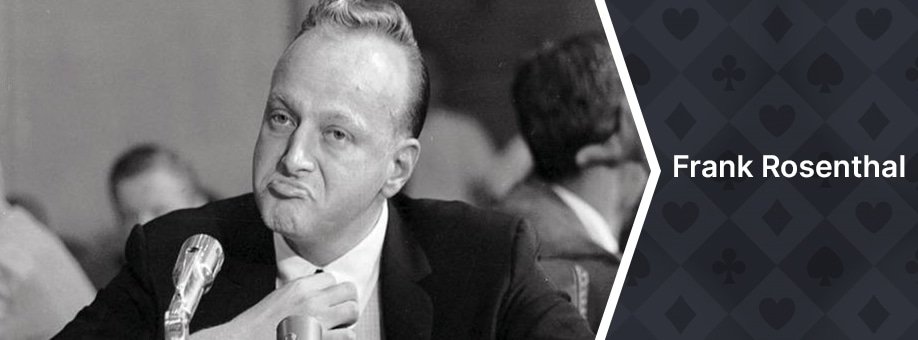
Sports Betting Expert
Frank Rosenthal, sometimes known as Lefty, was a professional gambler as well as a professional criminal. He's perhaps best known these days for being the inspiration behind Martin Scorsese's film Casino, which starred Robert De Niro. During his time in Las Vegas he ran several major betting establishments, including the Hacienda, Fremont, Stardust, and Marina casinos.
Rosenthal's father owned horses, which became the avenue that allowed Lefty to learn about sports and betting odds. This made him the perfect choice for running illicit gambling for the mafia, and in the 1950s he was responsible for the biggest underground sports betting ring in the USA. Rosenthal was something of an innovator, as he created the first casino-based sportsbook. It's never been proven, but he was also believed to be involved in numerous bombings that occurred in Mami during the 1960s.
Lefty got lucky when a car bomb probably should've killed him but his vehicle (a 1981 Cadillac Eldorado) uniquely had a thick metal plate under the driver's seat to improve the car's balance. In later years he became a consultant for sports betting.
Arnold Rothstein
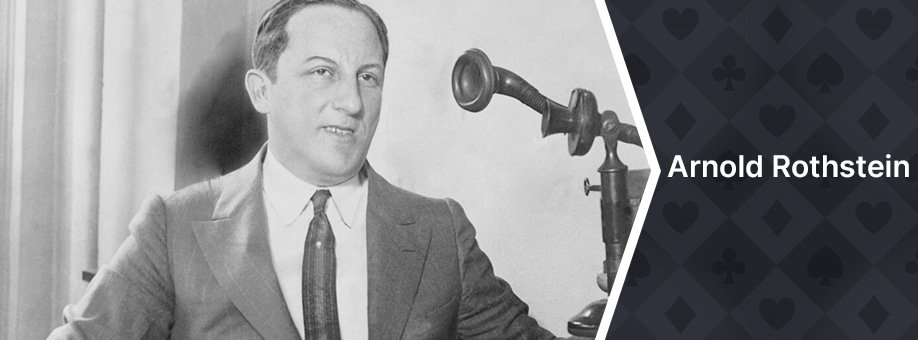
The Brain
Arnold Rothstein was a Jewish mob kingpin with numerous nicknames, including Mr. Big and The Brain. He was also keen on betting, to the extent of allegedly fixing events all the way up to the 1919 World Series. Rothstein was born in 1882, and his age meant he acted as a criminal mentor to many who would become big names themselves, including Lucky Luciano.
Rothstein started gambling with dice while still a child, despite the disapproval of his father. His early forays into betting as a business included establishing a casino in Manhattan and putting money into racetrack gambling. It was with horses that Rothstein is thought to have first started fixing results. It's never been proven, and there's evidence either way, but many believe he also fixed the 1919 World Series, paying the White Sox to deliberately lose.
Ironically, it was gambling that effectively caused Rothstein's own demise. Considered to be one of the best poker players of his time, he was playing cards and lost big. Down $320,000 (millions of dollars in today's money), Rothstein claimed the game was rigged and refused to pay up. For a man who liked fixing results himself, perhaps it was fitting. In 1928, shortly after the card game, Rothstein was shot and ended up dying of his wound.
Mickey Cohen
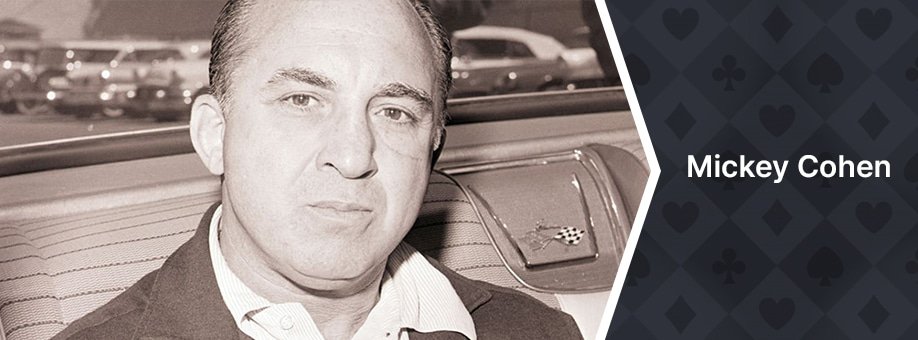
The Boxer
Mickey Cohen (real name Meyer Cohen) was born in New York City, but by his teens was competing in illegal boxing prize fights in Los Angeles. Moving to Cleveland, Cohen became a professional in the ring, and also made his first underworld contact (Lou Rothkopf).
In Chicago, Cohen ran illegal gambling operations for Al Capone, and acted as an enforcer (a role for which he was well-suited given his talent for boxing). Later, he was sent by Rothkopf and Lansky to LA to work for Bugsy Siegel. This connection led Cohen to run the sportsbook operation at the Flamingo, though he was not subject to the same termination as Siegel for that venture's failure.
Cohen also holds the unusual distinction of being the only man to be bailed out of Alcatraz, where he'd been imprisoned for tax evasion. In 1963 he was attacked in prison by an assailant with a lead pipe, but ended up surviving until 1976 when he succumbed to complications caused by stomach cancer surgery.
John Roselli
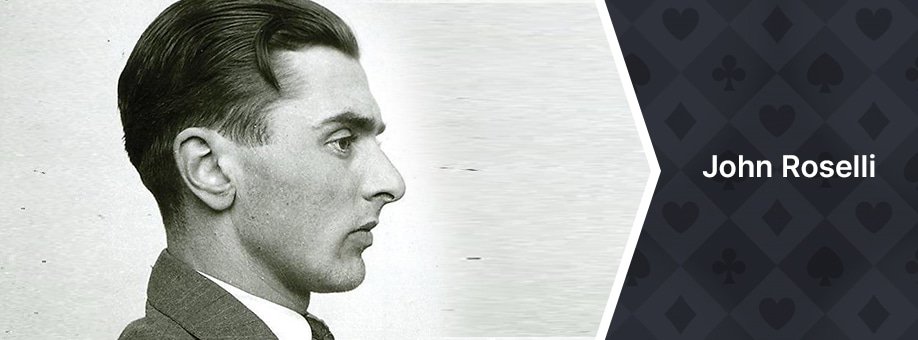
The Mob's Man in Las Vegas
John Roselli was born Filippo Sacco in Lazio (Italy) and migrated to America at an early age. His name change happened in Chicago, where he'd fled following narcotics charges in Massachusetts, and joined the Chicago Outfit.
The reasons are obscure (it's possible Al Capone sent him) but Roselli ended up going to Los Angeles. It was in that city that he became friends with Brian Foy, and credited as producer on a number of early gangster flicks. But his interest in Tinseltown waned in the 1950s when Las Vegas was getting going, and Roselli headed for Nevada.
Come 1956, Roselli was the representative of the Chicago and LA mob in Las Vegas, tasked with ensuring the mob bosses got the cut they were owed. Perhaps his biggest moment in the public's consciousness was in 1976, when Roselli was called to testify about the conspiracy to kill President Kennedy. Three months after his initial testimony the SSCIA wanted to recall him, but Roselli was nowhere to be found. His corpse was eventually discovered, decomposing, floating in a steel drum near Miami.
Tony Accardo
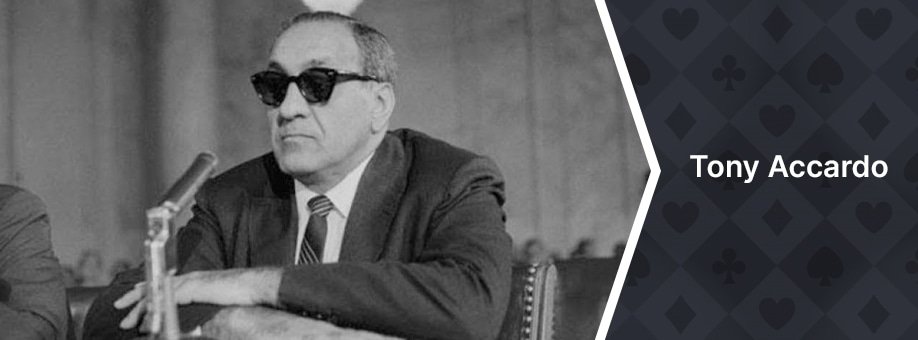
The Big Tuna
Tony Accardo had a prolonged stint as a career criminal and helped the mafia to expand into new parts of the world, as well as conducting new lines of black market business. He was born in Chicago in 1906, and was soon making his first steps into criminality when he joined a street gang as a teenager. One nickname, The Big Tuna, has a surprisingly innocent explanation: the newspapers dubbed him the name when he caught and was photographed with a giant tuna. His other nickname, Joe Batters, has the less pleasant origin of having used a baseball bat to murder three men.
As a Chicago gangster, Accardo worked for Al Capone until tax evasion ended rhe reign of his boss. Accardo then worked under Frank Nitti and built his own crew, running illegal gambling operations among other activities. He continued to rise in power, becoming underboss of the Chicago Outfit to Paul Ricca before ascending to be the boss himself. Under Accardo's reign, the Outfit expanded its activities into Las Vegas. Despite a lifetime of crime, Accardo died of natural causes at the age of 86.
Sam Giancana
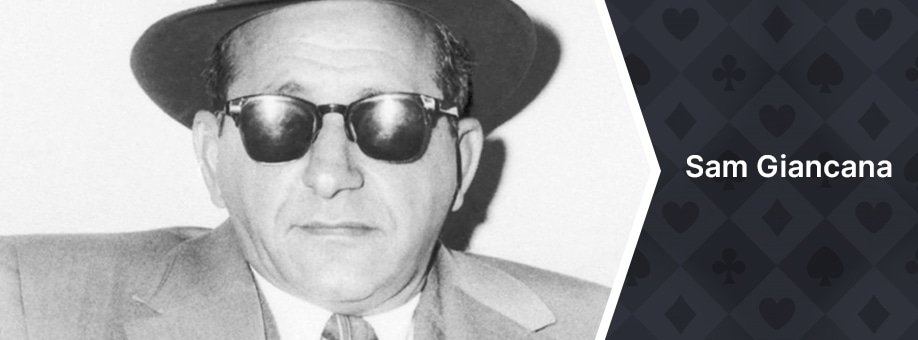
Too Flash for his Own Good
Another big hitter in the Chicago Outfit was Sam Giancana, who was born in the city and joined the 42 Gang while still in his teens. He then became the first member of said gang to graduate to the Outfit, and rose through the ranks over the years. In the 1940s he persuaded Accardo, then underboss, to take over the African-American lottery and in 1952 was responsible for the murder of African-American gambling boss Theodore Roe.
The amount of cash that started to be generated after the Outfit had control of gambling in the city was what made Giancana's name. When Accardo decided to take a back seat and become consigliere, Giancana was the pick to be boss (in 1957). Despite this, Giancana still had to pay heed to Accardo (and Ricca), making it more of a triumvirate than true leadership, and his ostentatious lifestyle attracted so much attention it exasperated Accardo. Giancana ended up being deposed by and replaced by Joseph Aiuppa. He fled to Mexico and was deported, and his days came to an end when he was shot dead in 1975 although no-one's quite sure why.
From men who met sticky ends at a young age to those who lived long and barely got a parking ticket, that concludes our top 10 gambling gangsters list. Luckily, legal betting around the world is eminently possible these days which many of the most famous gamblers would appreciate.









